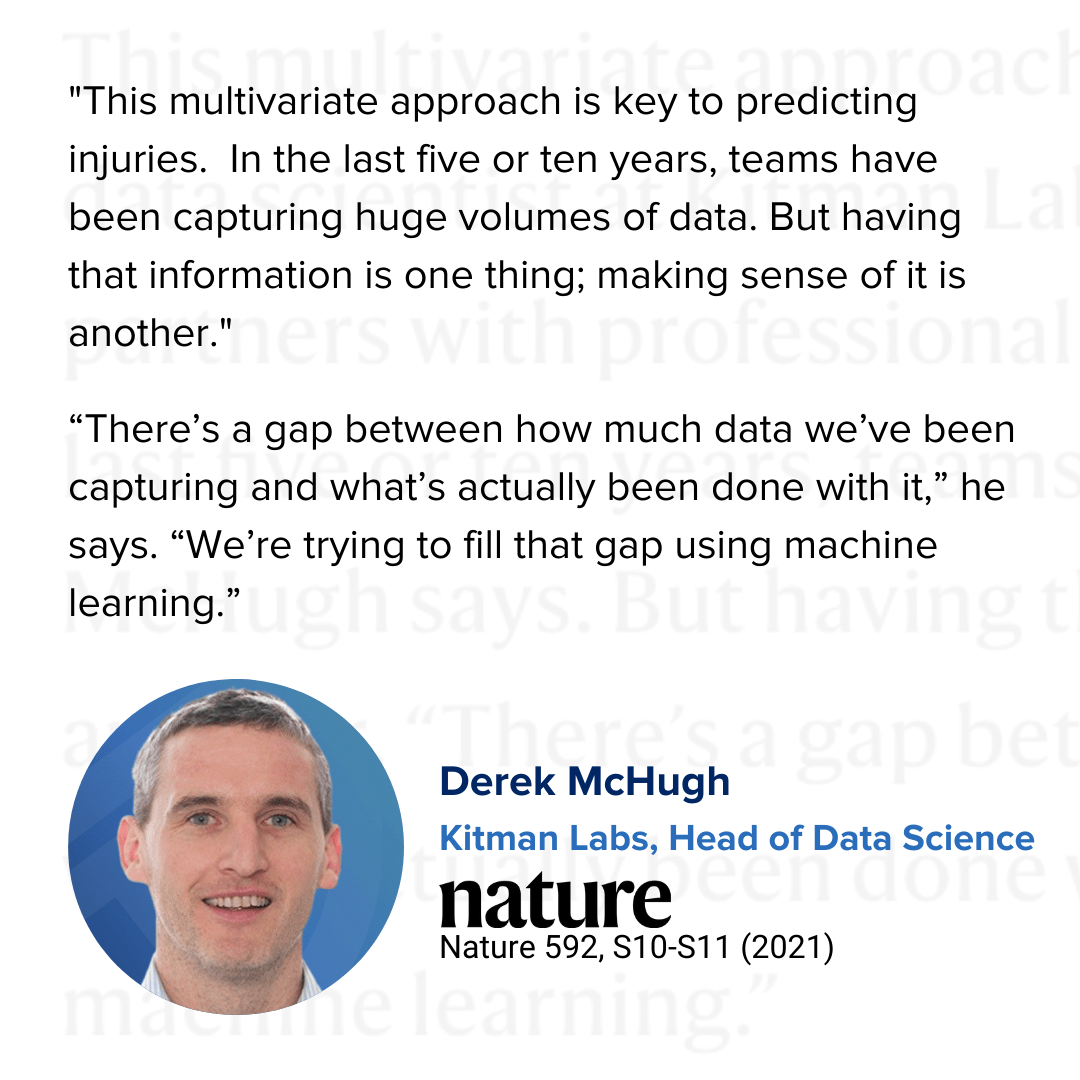From Hideki Matsuyama at Augusta to the NFL’s new partnership with Genius Sports, and, of course, the Super League chain of events, there’s a host of exciting sports news in the last couple of weeks. Amidst it all, readers may have missed this tweet from University of Western Australia’s Dr. Jacqueline Alderson, which takes aim at the perceived limitations of data and analytics. Dr. Alderson argues much of research amounts to “surveilling athletes 24/7, collecting truckloads of highly intimate and personal information” on only partially fulfilled promises to predict injuries.
Because we talk a lot about the promise of analytics here, I want to acknowledge Dr. Alderson’s point and hopefully dig a bit deeper because there’s a lot of value to be gained from a conversation on this.
Analytics isn’t a panacea, and I’m appreciative of Dr. Alderson’s pointing this out. That said, the industry is getting closer – and there’s a lot of positive developments for everyone from it, especially athletes. In our conversations with athletes and hundreds of organizations across elite sport, we’re seeing them treat data more and more as a new language of performance that drives widely shared benefits.
To start, let’s look at Kevin de Bruyne’s enlisting data analytics to help him negotiate with Manchester City. This is nothing short of incredible, due to the fact that he preferred data and analytics over the traditional player agent approach, but also as he used analytics to examine City’s squad depth to assess his it and their potential in the coming years.
Go back in time even five years ago and this would be unthinkable. Five years from now, we expect that analytics will become more normal on both sides of the negotiation table and perhaps we will see a different kind of agent in the future– thanks to the new language of performance.
This really shows the kind of maturity that is emanating both within and across the industry. As the new language of performance, analytics is enabling deeper human communication. The richer the data, the more powerful the analytics, the clearer that communication — and everyone is learning to speak it now: players, coaches, commissioners, owners, and fans.
To Dr. Alderson’s point that analytics hasn’t delivered on its promises, in the Nature article she comments on, Kitman Labs’ own Derek McHugh says it incredibly well:
There’s a gap between how much data we’ve been capturing and what’s actually been done with it. We’re trying to fill that gap using machine learning.

We’ve only begun to scratch the surface of what’s possible. The industry was at first overwhelmed by its data – the feeling was similar to traveling abroad when you don’t speak the language. But more and more, technology and analytics are rapidly translating this language for us, closing the gap.
And organizations that carefully collect high quality, consistent data and use it to drive greater collaboration and alignment achieve a fluency that positions them for incredible successes.
For example, the NFL announced a new partnership with Genius Sports to monetize its data. World Rugby announced a new safety initiative grounded in analytics — chipped mouth guards that will be used in grassroots matches and monitored in a University of Otago study.
That these occurred in the same week isn’t a coincidence: data is now a critical part of both the NFL’s fan engagement strategy and World Rugby’s player welfare strategy. These examples show our industry is reaching the point of fluency in the new language of performance: raw time and familiarity with data has made it more comprehensible. To borrow Derek’s phrase, “We’re getting out of the black-box algorithms.” Organizations are showing they can internalize data and answer in kind.
Let’s go back to Augusta because I think the new language of performance applies there, too. Whenever Bryson DeChambeau finishes tied for 46th at a major, a certain friend of mine will text: ‘What good did his data do?’ I always answer the same: How many majors did he win before he got serious about his data analytics?
Beyond, we’re excited to see how the industry speaks the new language of performance to carry the conversation to the next level in the time ahead.
Speaking of conversation, I’ll be sharing thoughts on sport’s most impactful developments and news on an ongoing basis, and I welcome your feedback on Twitter or at stephen@kitmanlabs.com.




